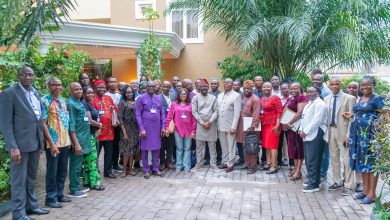Foreign Affairs Minister Warns U.S. Travel Ban Could Harm West Africa’s Economy
Nigeria warns the U.S. that a visa ban could hurt trade and peace in West Africa.
The Foreign Minister says such rules are unfair and could stop important international partnerships.
Nigeria’s Minister of Foreign Affairs, Ambassador Yusuf Tuggar, has raised concerns over a proposed travel restriction by the United States, warning that the policy could have serious implications for the economy, diplomacy, and regional cooperation among West African nations.
Speaking on Wednesday during a meeting of the ECOWAS Mediation and Security Council in Abuja, Tuggar who also chairs the council highlighted the potential fallout of the reported visa restrictions, which are said to target all member states of the Economic Community of West African States (ECOWAS).
The Foreign Minister cautioned that such a move could disrupt not only diplomatic engagements but also trade partnerships and investment plans between the U.S. and countries across West Africa. He described the proposed restrictions as a significant threat to development and collaboration in critical sectors such as energy, security, and infrastructure.
“West Africa is a region rich in resources and brimming with innovation,” Tuggar stated. “Policies that impose blanket visa bans are not only unfair but also counterproductive. They hinder the region’s ability to form strategic partnerships and attract global investors.”
Tuggar emphasized that countries in the ECOWAS bloc, including Nigeria, are open to working with the United States and other international stakeholders. However, he noted that such cooperation must be built on mutual respect and fairness, not discriminatory travel policies.
He added that if implemented, the travel restrictions could severely slow down ongoing initiatives aimed at strengthening international trade and security cooperation. Many regional governments are currently working to enhance cross-border infrastructure and economic growth, efforts that could be derailed by the inability of businesspeople, officials, and professionals to move freely.
Tuggar further explained that ECOWAS nations are home to a wealth of natural resources, particularly critical minerals that are vital to the global energy transition and technological development. These assets, he argued, make the region a valuable partner to developed economies, including the United States.
He called on Washington to reconsider the travel ban and urged U.S. authorities to acknowledge the strategic importance of West Africa in global development. “We need policies that bring people together, not ones that build walls and stifle progress,” he said.
Reports suggest the U.S. government under a possible directive from former President Donald Trump may soon implement a travel ban targeting Nigeria and other African nations. The alleged justification for the ban includes concerns over weak identification systems and fraud-related issues in visa applications.
Affected countries, according to early drafts of the proposal, have reportedly been given a 60-day deadline to improve internal documentation processes. The list includes Nigeria, Ghana, Angola, Ethiopia, Benin, Liberia, Cameroon, and several others.
If enforced, the ban could impact individuals seeking to travel for official assignments, educational opportunities, international conferences, and business negotiations.
Ambassador Tuggar concluded by urging the U.S. government to engage in open dialogue with ECOWAS member states and avoid policies that would harm bilateral and regional cooperation. “Africa is not asking for special treatment,” he said. “We’re asking for fairness and partnership based on shared goals.”



